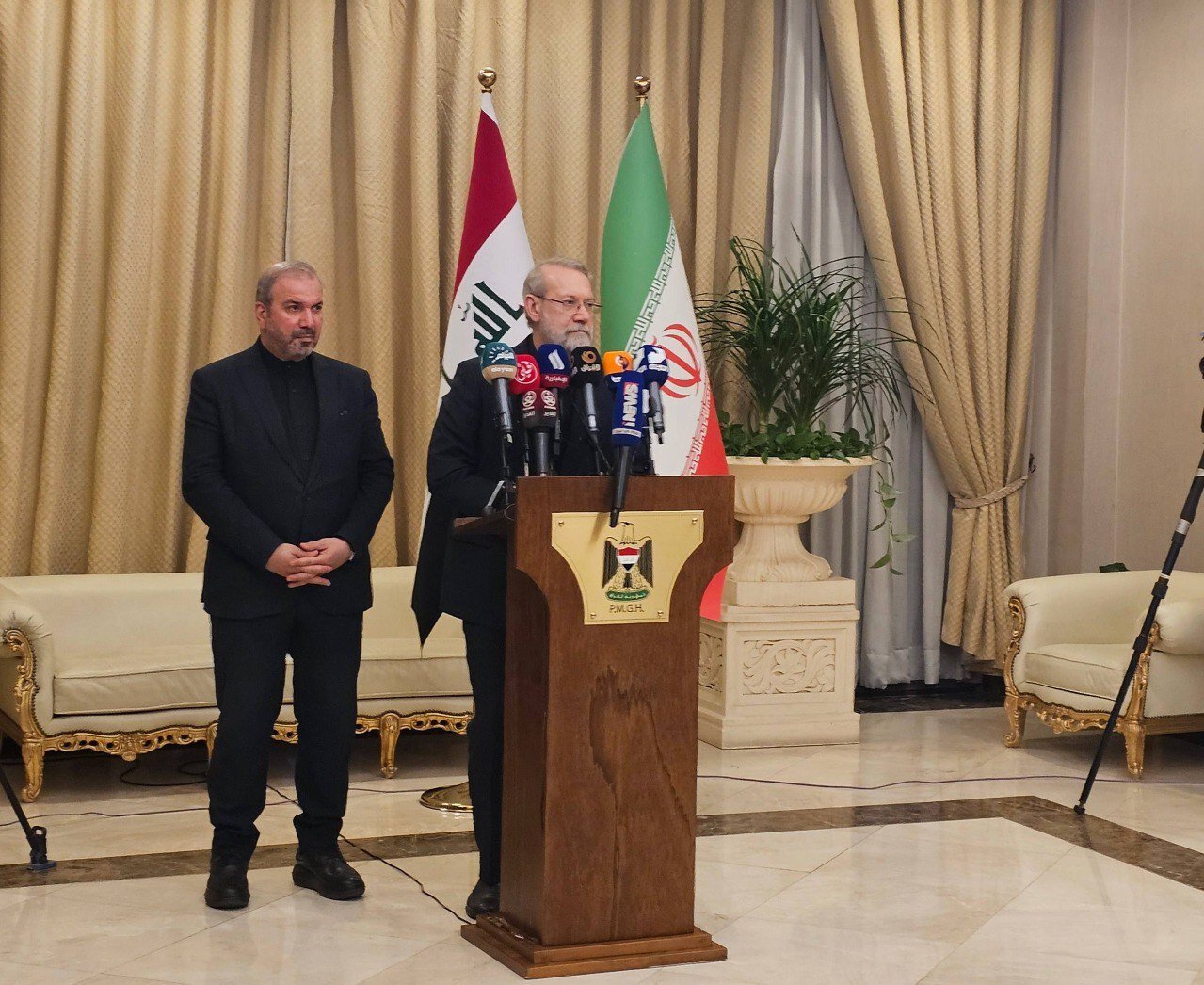Resistance groups ‘don’t need guardianship’

TEHRAN – Iran’s top security official, Ali Larijani, continued his visit to Iraq on Tuesday, where he took a look at facilities hosting Iranian pilgrims in Iraq after spending Monday on several high-level meetings with the Arab country’s officials.
Larijani, who was recently appointed secretary of Iran’s Supreme National Security Council (SNSC), was seen serving tea to Iranian pilgrims visiting Iraq to commemorate Arbaeen. Arbaeen marks 40 days after the martyrdom anniversary of Imam Hossein (AS) and represents the world’s largest annual gathering, drawing millions to Karbala, where Imam Hossein was martyred in his stand against Yazid.
Following the previous day's meetings with Iraq’s president, parliament speaker, and prime minister – which resulted in the signing of a new joint security agreement between Tehran and Baghdad – Larijani's second day was relatively quiet.
The veteran Iranian statesman is scheduled to return to Tehran after a stop in Beirut, where meetings with top Lebanese officials are expected. The visit occurs amidst growing Western pressure on Hezbollah to disarm, despite the group's successes against Israel during a 14-month war that also saw the assassination of key Hezbollah figures by Israel.
While a ceasefire agreement signed in November 2024 was meant to end the conflict between Israel and Hezbollah, Israelis have been violating the terms, conducting airstrikes in different parts of Lebanon on a regular basis.
Apart from the cessation of attacks, the agreement stipulated Israel's withdrawal from Lebanon following Hezbollah's retreat behind the Litani River. However, after Hezbollah's withdrawal, Israel occupied at least five new areas in southern Lebanon and is now demanding full implementation of UN Resolution 1701, which calls for the disarmament of all military groups in Lebanon, restricting weapons possession to the Lebanese Army. Hezbollah maintains it will only discuss implementing the resolution once Israel withdraws from Lebanon and fulfills its obligations under the ceasefire agreement.
The Lebanese government, however, seems to have caved in to pressure from Israel and the West at a time when Hezbollah's potential disarmament could embolden Israeli attacks. Following a cabinet meeting on Thursday, Lebanon’s Prime Minister Nawaf Salam announced that ministers had approved the "objectives" of a U.S. proposal aimed at "ensuring that the possession of weapons is restricted solely to the state." He did not address concerns regarding the potential for increased Israeli aggression should a strong deterrent force be absent. Hezbollah was formed in the early 1980s in response to Israel’s occupation of southern Lebanon and has served as a significant and undeniable force countering Israeli aggression alongside the Lebanese Army in past decades.
Israel has been trying to paint Hezbollah as a “proxy” of Iran to justify its disarmament and dissolution, an assertion rejected countless times by Iran, most recently during a presser Larijani held in Baghdad.
“The nations of Iraq and Lebanon are wise and courageous; they do not need us to tell them what to do,” Larijani said to a room of reporters. “Iran is a friend to both countries and engages in mutual consultation, but it does not issue commands."
He specifically addressed Hezbollah, saying the group along with other Resistance factions in the region “possess a highly developed political mindset and do not need guardianship.”Top of Form
Israel and the U.S. have carried out similar efforts to disarm Resistance factions in Iraq. “Each of these groups is considered a national asset in their respective country, and has a good understanding of the situation. They know what to do at any particular moment. Therefore, I believe, all efforts should be devoted to maintaining this capacity,” Larijani noted.
By Soheila Zarfam
Leave a Comment